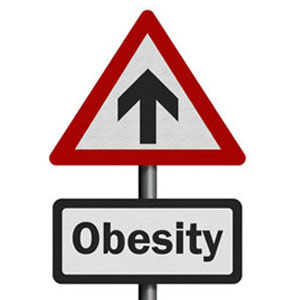
There's more bad news for overweight Americans: A 30-year study finds the risk for heart disease rises the longer someone is obese.
"Each year of obesity was associated with about a 2 to 4% higher risk of subclinical coronary heart disease," said study lead author Jared Reis, an epidemiologist with the US National Heart, Lung, and Blood Institute.
"Subclinical" heart disease means damage to arteries that shows up in markers such as calcium buildup on arterial walls, but has not yet developed into symptomatic illness.
"Those with longest duration of both overall obesity and abdominal obesity tended to have the highest risk" for subclinical disease, Reis said.
The report was published in the July 17 issue of the Journal of the American Medical Association.
Obese for years
In the new study, Reis' team used scans to track calcium build-up in the heart arteries in almost 3 300 adults 18 to 30 years old. When the study began in the mid-1980s, none of the participants were obese.
During the course of the study, however, more than 40% became obese and 41% developed abdominal obesity (excess belly fat). Those who became obese tended to stay obese for years, the researchers noted.
The investigators found that 27.5% of these long-term obese participants showed signs of heart disease, and the problem got worse the longer the individual had been obese.
More than 38% of those with more than 20 years spent obese had calcified arteries compared with only about a quarter of those who never put on that level of excess weight, the findings showed.
Among those with overall obesity, 6.5% had more dangerous "extensive" arterial calcification, as did 9% of those with obesity centered around the belly area. In contrast, only about 5% of those who were not obese had this extensive calcification, the researchers found.
Dire consequences
Reis said the findings could have dire implications as Americans age.
"With the increased prevalence of obesity over the last 30 years, younger individuals are becoming more obese at a younger age than in previous generations," he noted. "This longer duration of obesity may have important implications on the future burden of subclinical heart disease and potentially rates of clinical heart disease in the United States."
Another heart expert agreed.
"Obesity rates in adults and children have increased markedly in the United States over the last 25 years," said Dr Gregg Fonarow, a professor of cardiology at the University of California, Los Angeles. "This is particularly concerning as obesity is associated with an increased risk of diabetes, premature cardiovascular disease, and mortality."
Dr David Katz, director of Yale University's Prevention Research Center, said he also worries about rising obesity rates among the young.
"I have long feared that in an age of increasingly prevalent type 2 diabetes among children, the day may dawn when angina is an adolescent rite of passage alongside acne," Katz said.
This new study compounds that worry, he said. "It demonstrates just what common sense would suggest: That the longer the exposure to the adverse effects of obesity, the greater the harm to the coronary arteries."
According to Katz, "this study is yet another reason – as if we needed one – to devote all possible effort to the prevention, control and reversal of rampant obesity in childhood."
More information
For more information on obesity, visit the US National Library of Medicine.




 Publications
Publications
 Partners
Partners















